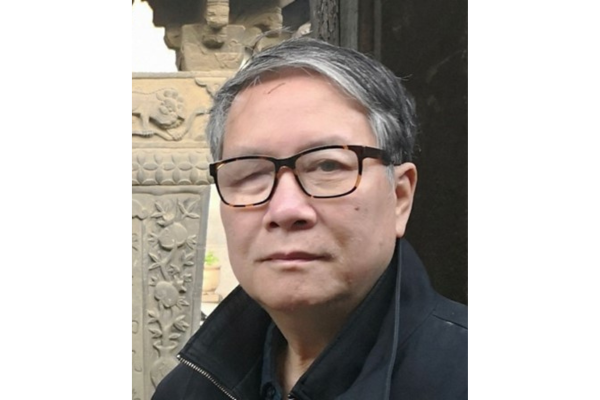
This target language lecture will be presented in Mandarin
The Institute for Chinese Studies and Ohio Chinese American Professional Association (OCAPA) present:
"On the 'Low Human Rights Advantage': China, Globalization, and the 'New Cold War'"
关于“低人权优势”的争论:中国,全球化与“新冷战”
Abstract: 新世纪这一波经济全球化后果出人意料。秦晖教授在2005年提出“低人权优势”来解释全球化带来的相关问题,在中国学界和舆论界引起激烈讨论。“低人权优势”指的是除了低工资、低福利的传统优势外,中国更以“低人权”的“优势”人为压低人力、土地、资金和非再生资源的价格,以不许讨价还价、限制乃至取消许多交易权利的办法“降低交易成本”,以压抑参与、漠视思想、信仰和公正、刺激物欲来促使人的能量集中于海市蜃楼式的单纯求富冲动,从而显示出无论自由市场国家还是福利国家都罕见的惊人竞争力,也使得无论采用“渐进”的还是“休克疗法”的民主转轨国家都瞠乎其后。这场讲座将细致阐述中国“低人权优势”在中国崛起中的作用和给全球化带来的问题,以及这对于中美关系所带来的复杂影响。秦晖教授将以纵深的角度阐释“低人权优势”在历史上并不罕见,并倡议民主支持者认真面对其所带来的严峻挑战。
Consequences of the new wave of economic globalization of our century have been unexpected. Professor QIN Hui's 2005 proposed concept of "low human rights advantage" was an explanation for the problems brought about by globalization and has led to heated discussions in the Chinese public and among Chinese intellectuals. The term "low human rights advantage" refers to the fact that in addition to its traditional advantages of low wages and low welfare, China has also used its "low human rights" advantage to artificially lower the prices of human labor, land, capital and non-renewable resources, to "lower transaction costs" by disallowing bargaining and restricting or even eliminating many rights of exchange, and to focus people's energies on the mirage-like impulse of simply seeking wealth by repressing participation, disregarding ideas, beliefs and justice, and stimulating materialistic desires. The result of this is an astonishing competitiveness that is rare for either a free-market country or a welfare state. This level of competitiveness has also left democratic-transition countries, whether they have adopted "gradualism" or "shock therapy," in the dust. This lecture will address in detail the role of China's "low human rights advantage" in China's rise and the problems it poses for globalization, as well as its complex implications for U.S.-China relations. In his analysis, Prof. Qin will argue that the "low human rights advantage" is not uncommon in history and will advocate that supporters of democracy take seriously the severe challenges that “low human rights advantage” poses.
Hui Qin is an economic historian and one of China’s foremost public intellectuals. He retired as Professor of History, Institute of Humanities and Social Sciences, Tsinghua University, in 2017 and then served as a Visiting Professor at the Chinese University of Hong Kong and the University of Tokyo. Qin graduated with a Master’s Degree from Lanzhou University in 1981, studying under the renowned historian Zhao Lisheng. Qin’s primary field is economic history and peasant studies. In 1997, Qin coined the phrase ‘Huang Zongxi’s Law’ to suggest that post-Maoist efforts at reform were similarly short-sighted and under-resourced. In 2003, then newly appointed Premier Wen Jiabao quoted Qin to present the government as genuine in its efforts to alleviate rural poverty. Wen promised that under the government’s fee-for-tax reforms, the dire situations described under ‘Huang Zongxi’s Law’ would not be allowed to develop. Qin, who has written extensively on issues relating to social justice in China’s countryside, is currently focusing his research on China, globalization, and the “new Cold War.” His influential works include Ten Expositions on Tradition (传统十论) (2004), Departing from the Imperial Regime(走出帝制) (2015), and many others.
Qin’s commentaries are featured regularly in major news outlets such as the Financial Times (Chinese edition). His recent research includes three broad topics: China, globalization and the “new Cold War”; China’s social economy during the Cultural Revolution; and rethinking the lessons of the May Fourth Movement—what he calls “the failure of the second wave of global democratization.”[1]
For an elaborate version of Prof. Qin’s bio, please see https://www.thechinastory.org/key-intellectual/qin-hui .
[1] This short biography is adapted from https://fairbank.fas.harvard.edu/person/hui-qin/ and https://www.thechinastory.org/key-intellectual/qin-hui.
If you require an accommodation, such as live captioning, to participate in this event, please contact EASC at easc@osu.edu. Requests made at least two weeks in advance of the event will generally allow us to provide seamless access, but the university will make every effort to meet requests made after this date.
This event is supported by a U.S. Department of Education Title VI grant to The Ohio State University East Asian Studies Center.
